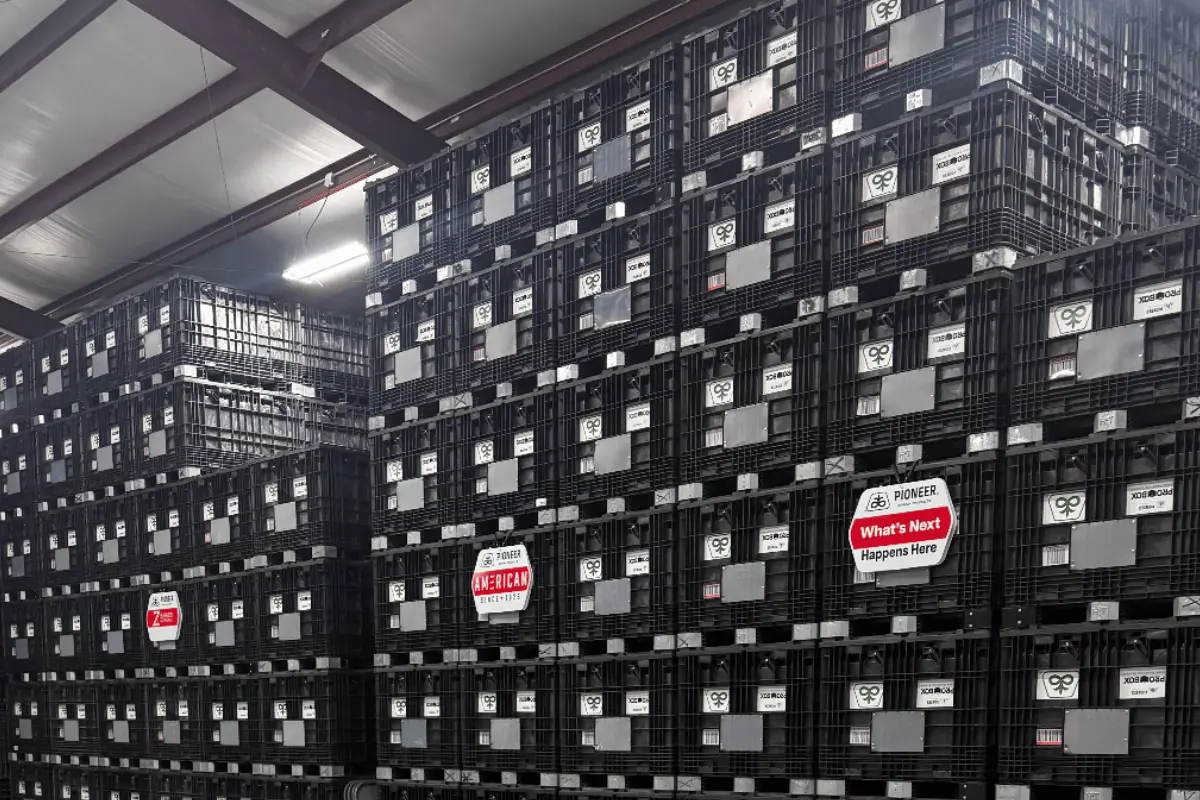12 questions to ask your seed rep to get the best ROI for your farm
Seed isn’t just another input; it’s the foundation of your entire crop season. Choosing the right hybrids and varieties can make or break your yield potential, influence your input costs, and shape your management decisions for months to come. That’s why your relationship with your seed representative matters just as much as the genetics in the bag. But too often, seed conversations focus on discounts and programs instead of agronomic fit and long-term cashflow. The best farmers don’t just buy seed; they ask the right questions to make sure each hybrid or variety is the best fit for their farm’s unique conditions. Here are twelve questions every farmer should ask their seed rep before locking in next season’s seed order.
1. How has this hybrid or variety performed locally?
National trial data is a good starting point, but nothing beats local results. Ask your rep for side-by-side comparisons within your soil types and management zones. Yield consistency across years and weather extremes often tells you more than top-end yield alone.
Pro tip: Request to see third-party or university plot data, not just company trials.
2. What soil types and management styles is this seed best suited for?
Every hybrid or variety has a “personality.” Some thrive on heavy ground, others shine on lighter soils or in reduced-till systems. Ask your rep to break down the agronomic profile so you can match each product to the right field. A good rep should be able to talk confidently about soil interactions, drainage, and management compatibility.
3. What disease and pest pressures does this seed protect against?
From tar spot in corn to sudden death syndrome in soybeans, disease resistance can save bushels and headaches. Ask your rep what diseases or pests this seed line is most resistant to, how it compares to other hybrids in your lineup, and whether additional fungicide or insecticide treatments are recommended. These insights help you plan not just what to plant, but how to manage your crop all season long.
4. How do these genetics fit into my crop rotation?
If you’re rotating between corn and soybeans or incorporating wheat, your seed choices should complement each other. For example, selecting a soybean variety that matures earlier might give you a head start on fall tillage or wheat planting. Ask your rep how different seed choices fit into your rotation strategy, residue breakdown, and soil fertility goals.
5. What’s the realistic yield potential under my management practices?
Every seed company promotes “high yield potential,” but you should dig deeper. Ask for yield expectations under different management levels, such as standard fertility versus intensive fertility, dryland versus irrigated, and high versus low population density. This helps you budget more accurately and sets realistic yield goals for each field.
6. What population and planting rate do you recommend?
Optimal planting rates vary widely among hybrids and varieties. A rep who understands your equipment and field variability should provide prescription-level guidance. Ask for population recommendations by soil zone, or better yet, use your precision planting data and Traction Ag’s field records to compare side-by-side results year over year.
7. How does this seed handle stress?
Drought tolerance, cold emergence, and standability are critical traits that often get overlooked. Ask your rep about performance in high-stress years, such as wet or dry conditions, root and stalk strength, and tolerance to temperature swings at planting. Seeds that can handle stress give you more consistency, which often translates into higher average ROI even if they’re not the top-yielding hybrid in ideal conditions.
8. What trait packages are available and do I really need them?
From herbicide-tolerant soybeans to corn rootworm protection, trait packages add convenience but also cost. Ask your rep which traits truly benefit your operation and whether a non-traited or conventional option could perform just as well in certain fields. A thoughtful mix of traited and conventional hybrids can balance performance and profitability.
9. What are my total costs per acre for this seed?
It’s not just about the per-unit price; it’s about cost per acre. Ask your rep to help you calculate seed cost per acre at your target population, expected yield, and return on investment versus alternative hybrids. Farmers who track these numbers in a system like Traction Ag’s accounting software can quickly see which hybrids are paying off and which aren’t.
10. What’s your early order or financing program?
Seed companies often offer early discounts or deferred payment options. These programs can improve your cash flow or reduce your tax liability if you prepay before year-end. Ask your rep about timing, qualification requirements, and whether programs differ by product line or brand.
11. How does this year’s weather or supply outlook affect my options?
Seed supply can tighten quickly for popular hybrids, especially after extreme weather seasons. A proactive seed rep will share availability updates and help you build backup plans early. Ask them what they’re seeing for the coming season, especially if you’re in a region affected by drought or disease the previous year.
12. How will you support me after the sale?
The relationship doesn’t end when the seed is delivered. Ask your rep what kind of in-season support you can expect. Will they scout fields with you, help evaluate stand counts or replant needs, and review yield maps to help plan next year’s adjustments? A seed rep who stays engaged through harvest is an investment in your farm’s long-term success, not just a salesperson.
Final thoughts: Build a relationship, not just a transaction
Your seed rep should be part of your decision-making team, not just your supplier. The best reps take the time to understand your operation, walk your fields, and make recommendations based on data, not just sales goals. When you ask better questions, you make better decisions. And when those decisions are tracked against your financial and field data, you start to see a clear picture of what’s truly driving profit on your farm.
Want to connect the dots between seed decisions and profitability?
Traction Ag helps you bring your field and financial data together so you can see breakeven costs per acre and per bushel. Turn every seed purchase into a data-driven decision and grow your bottom line with confidence.
Farm accounting that just works.
Tired of hacking workarounds in software that wasn’t built for farms? We made Traction Ag just for you.

Agape Farms in Ohio



